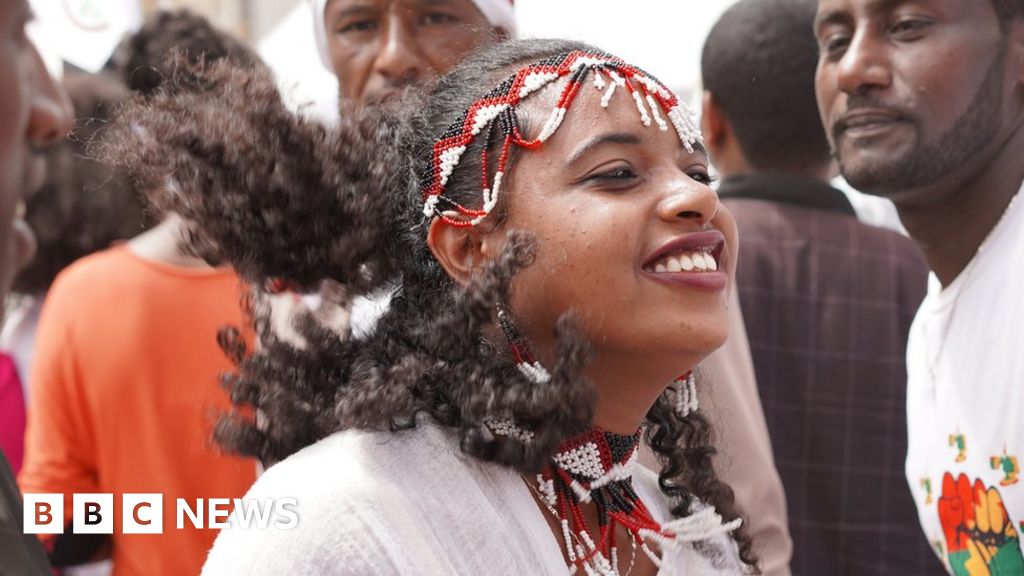
Huge crowds turned out in Ethiopia's capital, Addis Ababa, as it hosted for the first time in more than a century the annual Irreecha thanksgiving festival of the Oromo, the country's largest ethnic group.
In one Irreecha tradition, freshly cut grass and flowers are placed to thank God for the end of the rainy season and the beginning of spring.
There was tight security as hundreds of thousands of people clogged the streets, including Addis Ababa's main public area, Meskel Square. They chanted, sang and waved flags and flowers.
City officials said they were expecting 10 million people to take part, though the final attendance figures are hard to estimate.
Previously, the annual festival had been celebrated in Bishoftu, 40km (25 miles) away, but similar gatherings have taken place in other parts of Oromia at different times of the year.
The move to the capital, which is surrounded by Oromia, is seen by some as a recognition of Oromo culture by the authorities. For years, Oromo people had complained of cultural and political marginalisation.
But some say it is an attempt by the ruling party to cultivate popular support ahead of next year's general election, reports the BBC's Kalkidan Yibeltal.
There are thought to be at least 40 million Oromos in Ethiopia, making up more than 30% of the population.
Within the Oromos there are many different traditions associated with where people come from, and Irreecha brings them all together.
The celebration is a chance for people to wear traditional costume.
These men, from the Shoa region, are wearing "Daabe", made from baboon skin.
The beadwork, known as chelie, that these women are wearing on their foreheads is common to all Oromos, but their clothes are typical of people from the Borena region.
These men made the 400km journey from Bale, in southern Ethiopia, to join in the festivities. Their headscarves, known as ruufa, are worn at any major celebration.
This woman from Hararghe, in the east of Ethiopia, came in the clothes typical of her region.
A community from Alaba, which is in southern Ethiopia outside of Oromia, also joined in.
Ethiopia Prime Minister Abiy Ahmed is himself from Oromia.
He has implemented radical reforms since coming to power last year following protests demanding more rights for ethnic groups.
But despite the move to the capital, the festival comes amid rising political tensions and ethnic rivalries that are dogging Mr Abiy's administration, our correspondent says.
Photographs by Yadeta Berhanu (BBC), Amensisa Negera (BBC), Reuters and AFP.
https://www.bbc.com/news/world-africa-49945694
2019-10-05 13:27:42Z
CBMiLmh0dHBzOi8vd3d3LmJiYy5jb20vbmV3cy93b3JsZC1hZnJpY2EtNDk5NDU2OTTSATJodHRwczovL3d3dy5iYmMuY29tL25ld3MvYW1wL3dvcmxkLWFmcmljYS00OTk0NTY5NA
Tidak ada komentar:
Posting Komentar